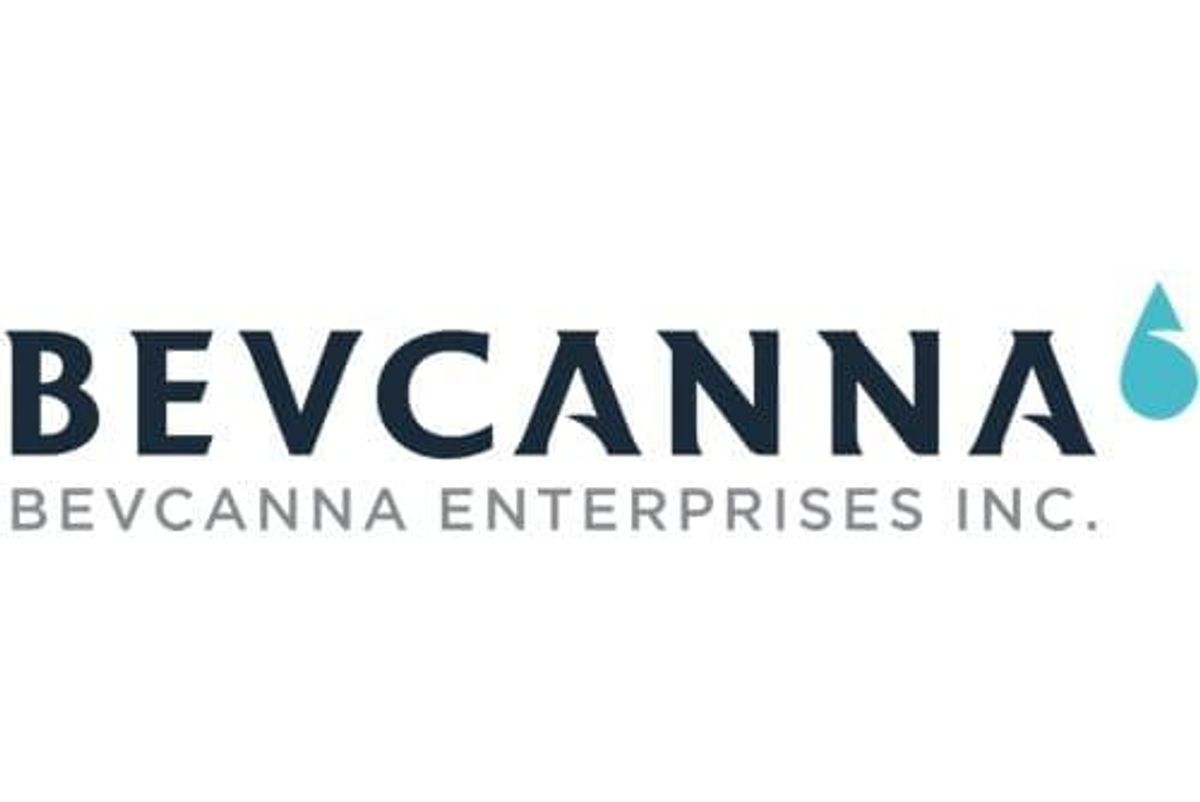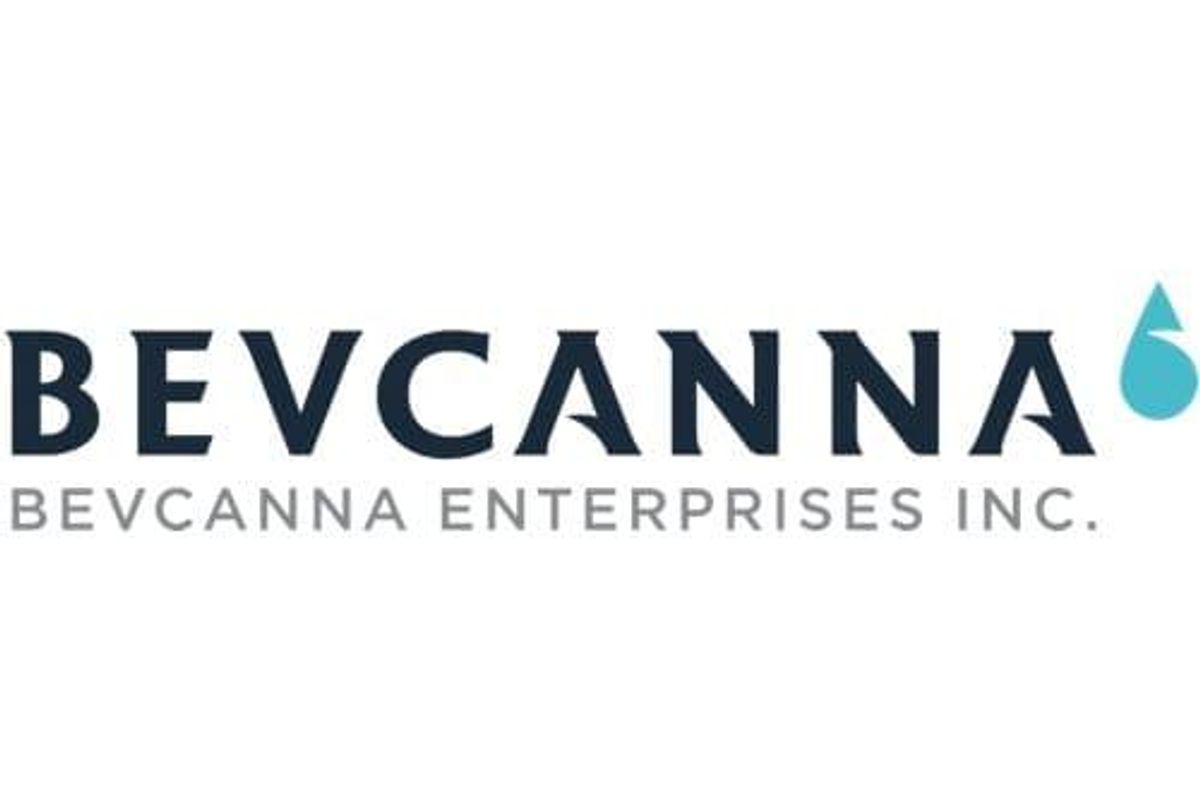
An Emerging Markets Sponsored Commentary
Some pretty important news out of health and wellness; beverage and natural products company BevCanna Enterprises Inc. (CSE:BEV, Q:BVNNF, FSE:7BC) this week. For those of you following the Company with us, stay tuned.
For those of you new to this compelling consumer packaged goods and cannabis opportunity, stick around.
In a press release titled " BevCanna Provides Outlook on Strategic Evolution to Global Health and Wellness Company " the Company laid out some pretty strong guidance as to their goals and objectives in the very near future. To sum it up, the Company plans to rapidly accelerate the introduction of new products in the marketplace.
The Company does a thorough job laying out the four growth verticals. Let's take a look:
1) BevCanna Canada – On the heels of receiving a coveted Health Canada Standard Processing License (SPL) to manufacture and sell cannabis beverages and products in the Canadian market the Company can now start production on its Keef beverages and white labels in major Canadian markets. Partner this with a a commercial roll-out strategy and new B2B relationships with other license holders and non-license holders in the Canadian market and there is significant growth opportunity to be had.
2) Naturo Group – This is a recent BevCanna acquisition of Naturo Group which could really accelerate the Company's entry into the growing health and wellness industry. The deal gives them a 40,000 sq. ft. manufacturing facility, alkaline spring water aquifer, 315-acres of land, and more. All this could really expedite monetization of their leading plant-based beverage and nutraceutical brand, TRACE.
3) Pure Therapy – This is the big American+ play for the Company via the recently acquired U.S. & international hemp & nutraceutical Pure Therapy e-commerce platform which sells a range of natural health products, including nutraceutical and hemp-based cannabidiol products throughout North America and Western Europe. It's significant because of the size of both of those marketplaces which if exploited would be revenue accretive to the Company's firm foothold in Canada. It's worth mentioning that the Company now owns a proven e-commerce platform through which they can sell ALL their legally permitted products. Remember when Wal-Mart bought start-up online retailer Jet.com just to get a jumpstart on e-commerce? Read this article and ask yourself what's in common.
4) Not only does the Company have a significant foothold and barrier to entry in the Canadian cannabis sector, as well as U.S. health and wellness e-commerce sector; But the Company seeks to pursue rapid U.S. cannabis growth vis-à-vis an exclusive partnership with award-winning, #1 U.S. cannabis infused beverage company, Keef. BevCanna will have access to Keef's extensive U.S. manufacturing and distribution network of over 1,000 dispensaries and delivery services across Colorado, California, Arizona, Nevada, Michigan, Oklahoma, and Puerto Rico.
It's a lot. Even our pithy distillation herein is a word or hundred longer than the Internet's general attention span. But smart money reads the details, looks at trajectories and potential, weighs the risk and reward.
And if you're as obsessed with significant assets and established revenue streams as an indicator of success and valuation, and a rapid expansion of the company's portfolio of products elegantly across a multi-channel sales and distribution network, BevCanna's recent news should be of interest.
About The Emerging Markets Report:
The Emerging Markets Report is owned and operated by Emerging Markets Consulting (EMC), a syndicate of investor relations consultants representing years of experience. Our network consists of stockbrokers, investment bankers, fund managers, and institutions that actively seek opportunities in the micro and small-cap equity markets.
For more informative reports such as this, please sign up at https://www.emergingmarketsllc.com/newsletter.php
Must Read OTC Markets/SEC policy on stock promotion and investor protection
- https://www.otcmarkets.com/learn/policy-on-stock-promotion
- https://www.otcmarkets.com/learn/investor-protection
- https://www.sec.gov/news/press-release/2017-79
- https://www.sec.gov/oiea/investor-alerts-bulletins/ia_promotions.html
Section 17(b) of the Securities Act of 1933 requires that any person that uses the mails to publish, give publicity to, or circulate any publication or communication that describes a security in return for consideration received or to be received directly or indirectly from an issuer, underwriter, or dealer, must fully disclose the type of consideration (i.e. cash, free trading stock, restricted stock, stock options, stock warrants) and the specific amount of the consideration. In connection therewith, EMC has received the following compensation and/or has an agreement to receive in the future certain compensation, as described below.
We may purchase Securities of the Profiled Company prior to their securities becoming publicly traded, which we may later sell publicly before, during or after our dissemination of the Information, and make profits therefrom. EMC does not verify or endorse any medical claims for any of its client companies.
EMC has been paid $350,000 by BevCanna Enterprises Inc. for various marketing services including this report. EMC does not independently verify any of the content linked-to from this editorial. https://emergingmarketsllc.com/disclaimer.php
Emerging Markets Consulting, LLC
Florida Office
390 North Orange Ave Suite 2300
Orlando Fl, 32801
E-mail: jamespainter@emergingmarketsllc.com
Web: www.emergingmarketsllc.com

